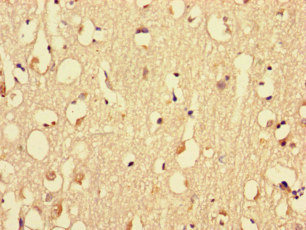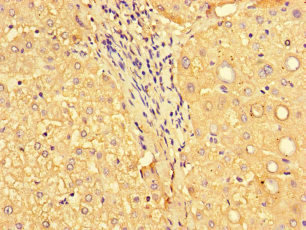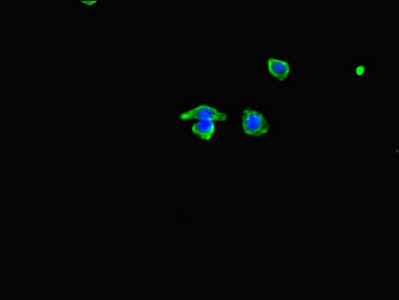Full Product Name
Rabbit anti-Homo sapiens (Human) MYH3 Polyclonal antibody
Alternative Names
embryonic antibody; fast skeletal muscle antibody; HEMHC antibody; Muscle embryonic myosin heavy chain 3 antibody; Muscle embryonic myosin heavy chain antibody; MYH 3 antibody; Myh3 antibody; MYH3_HUMAN antibody; MYHC EMB antibody; MYHSE 1 antibody; MYHSE1 antibody; Myosin heavy chain 3 antibody; Myosin heavy chain 3 skeletal muscle embryonic antibody; Myosin heavy chain antibody; Myosin heavy chain fast skeletal muscle embryonic antibody; Myosin Heavy Polypeptide 3 antibody; Myosin heavy polypeptide 3 skeletal muscle embryonic antibody; Myosin skeletal heavy chain embryonic 1 antibody; Myosin-3 antibody; SMHCE antibody
Immunogen
Recombinant Human Myosin-3 protein (1-217AA)
Immunogen Species
Homo sapiens (Human)
Conjugate
Non-conjugated
The MYH3 Antibody (Product code: CSB-PA015297LA01HU) is Non-conjugated. For MYH3 Antibody with conjugates, please check the following table.
Available Conjugates
| Conjugate |
Product Code |
Product Name |
Application |
| HRP |
CSB-PA015297LB01HU |
MYH3 Antibody, HRP conjugated |
ELISA |
| FITC |
CSB-PA015297LC01HU |
MYH3 Antibody, FITC conjugated |
|
| Biotin |
CSB-PA015297LD01HU |
MYH3 Antibody, Biotin conjugated |
ELISA |
Purification Method
>95%, Protein G purified
Concentration
It differs from different batches. Please contact us to confirm it.
Buffer
Preservative: 0.03% Proclin 300
Constituents: 50% Glycerol, 0.01M PBS, PH 7.4
Tested Applications
ELISA, IHC, IF
Recommended Dilution
| Application |
Recommended Dilution |
| IHC |
1:20-1:200 |
| IF |
1:50-1:200 |
Storage
Upon receipt, store at -20°C or -80°C. Avoid repeated freeze.
Lead Time
Basically, we can dispatch the products out in 1-3 working days after receiving your orders. Delivery time maybe differs from different purchasing way or location, please kindly consult your local distributors for specific delivery time.
Usage
For Research Use Only. Not for use in diagnostic or therapeutic procedures.









